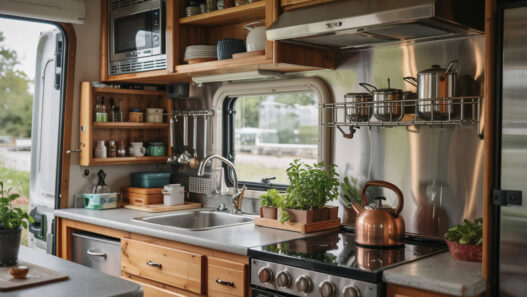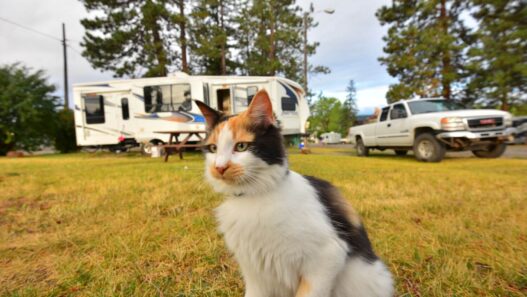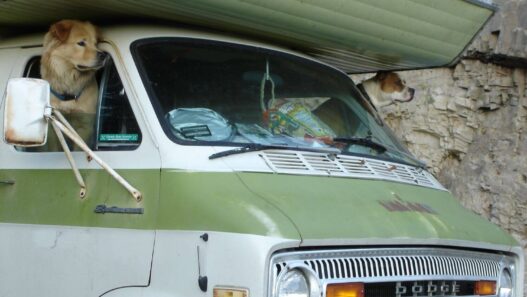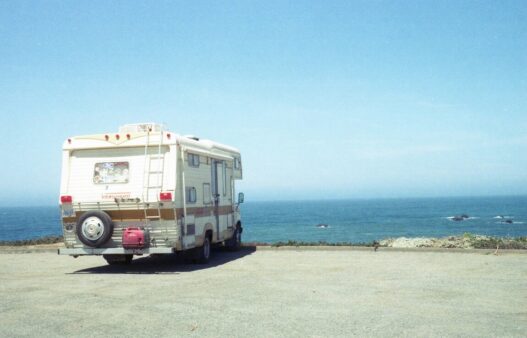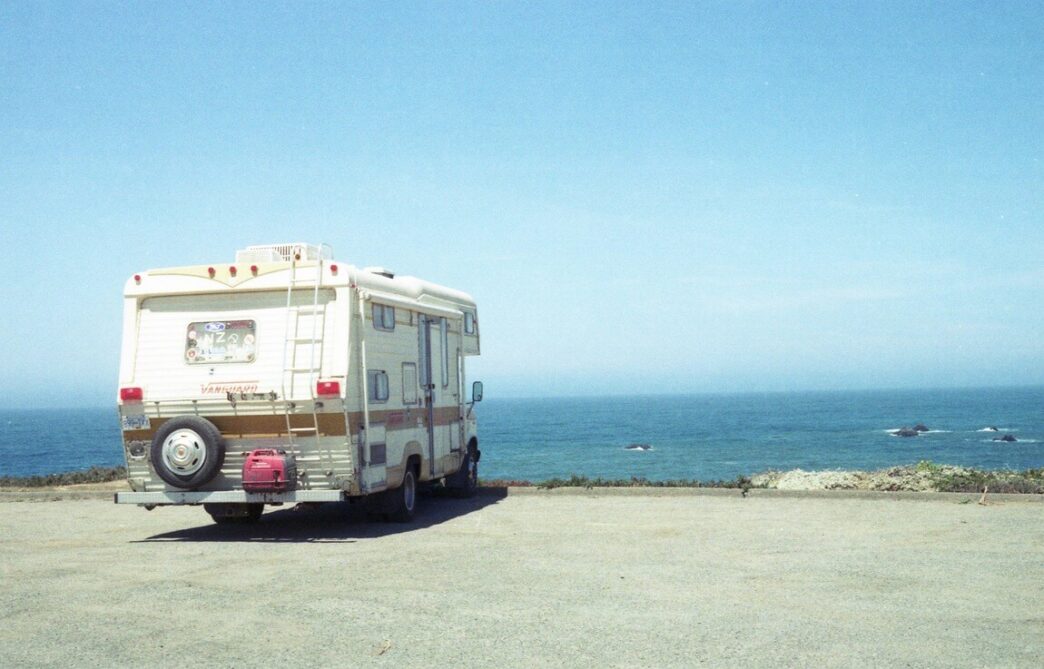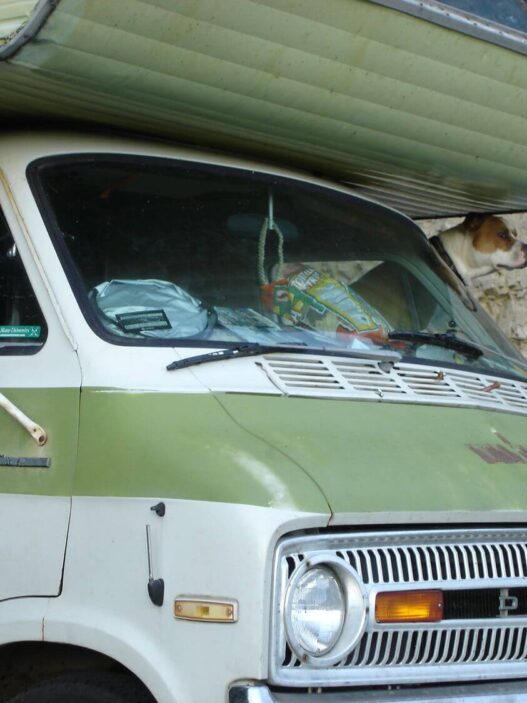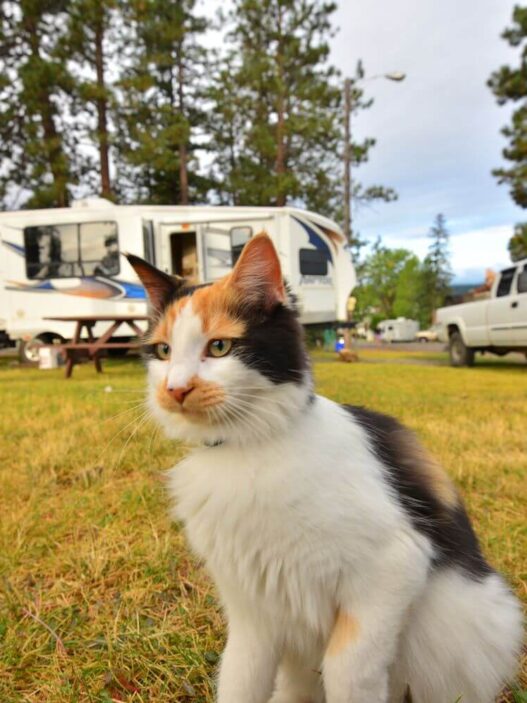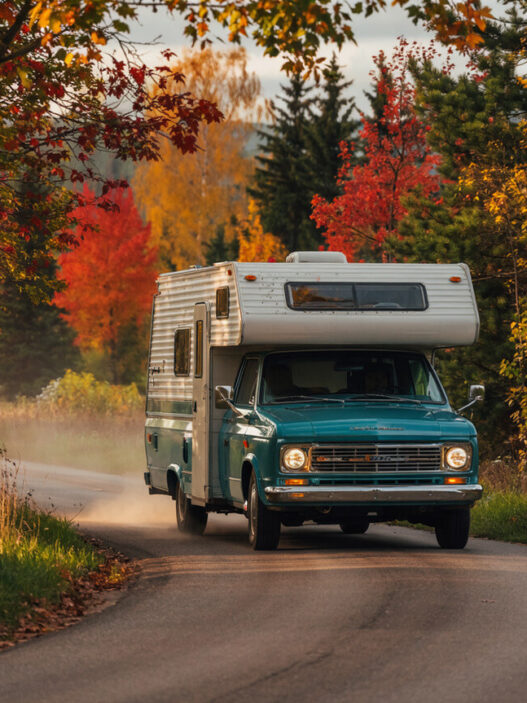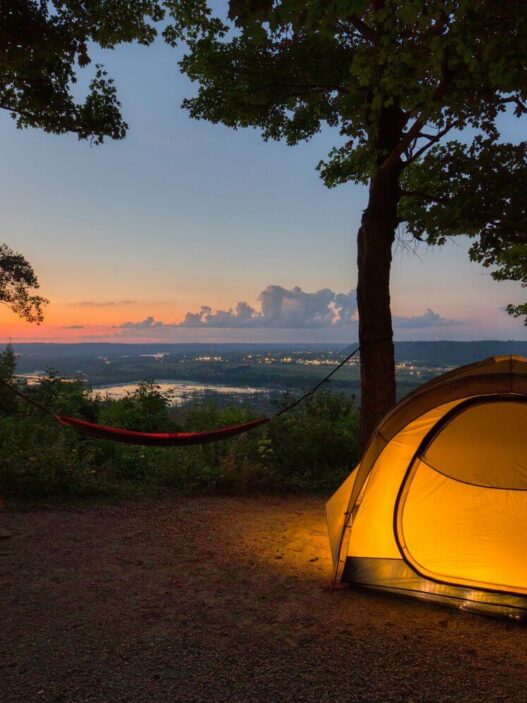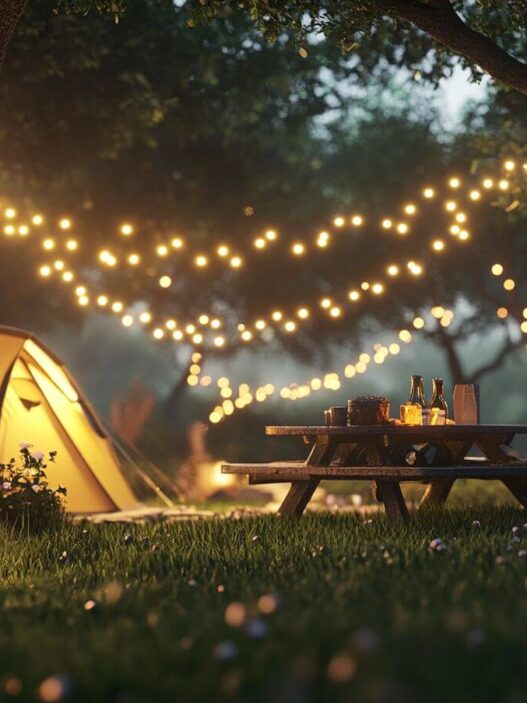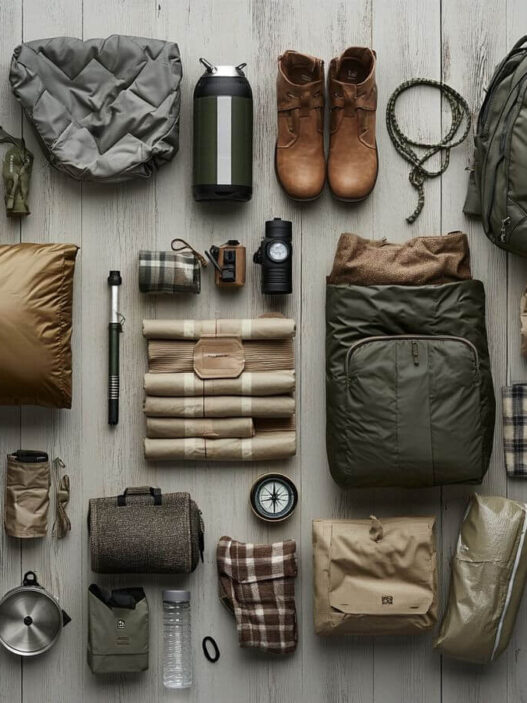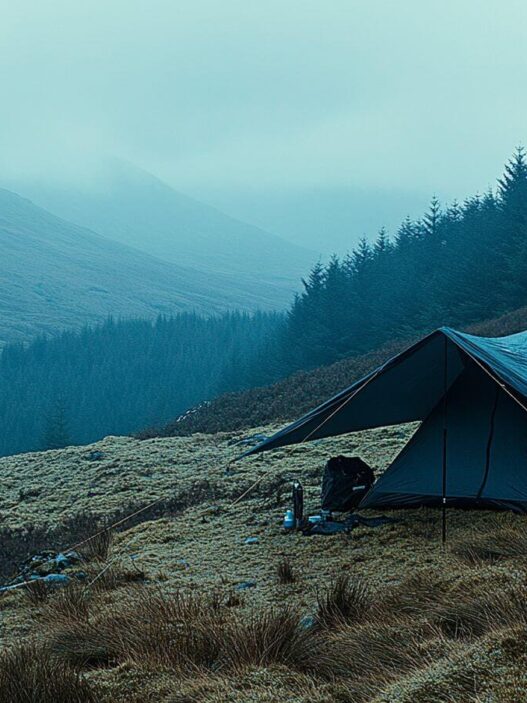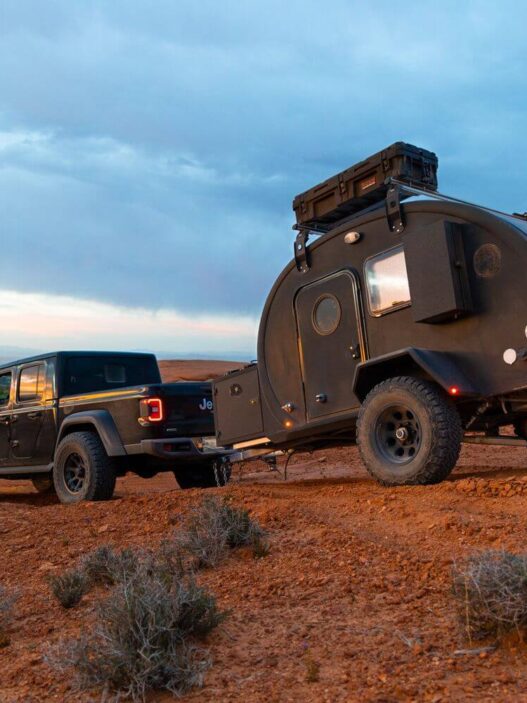Getting started with RV life is exciting, but there’s a lot to learn and everyone makes mistakes!
The good news is that you can learn from those who’ve gone before you. Here are the most common blunders new RVers make so you can avoid them.
Let’s jump in!
1. Buying the Wrong RV
Picking an RV is like choosing a house on wheels, so get it right! Don’t fall for fancy features if they don’t fit your needs. Make sure your truck can actually pull that dream trailer, or you might be stuck with a very expensive lawn ornament.
Match your RV to your lifestyle, budget, and towing capacity to avoid headaches down the road. Spending time researching different models and honestly assessing your needs will save you from costly trade-ins later.
2. Skipping the Checklist
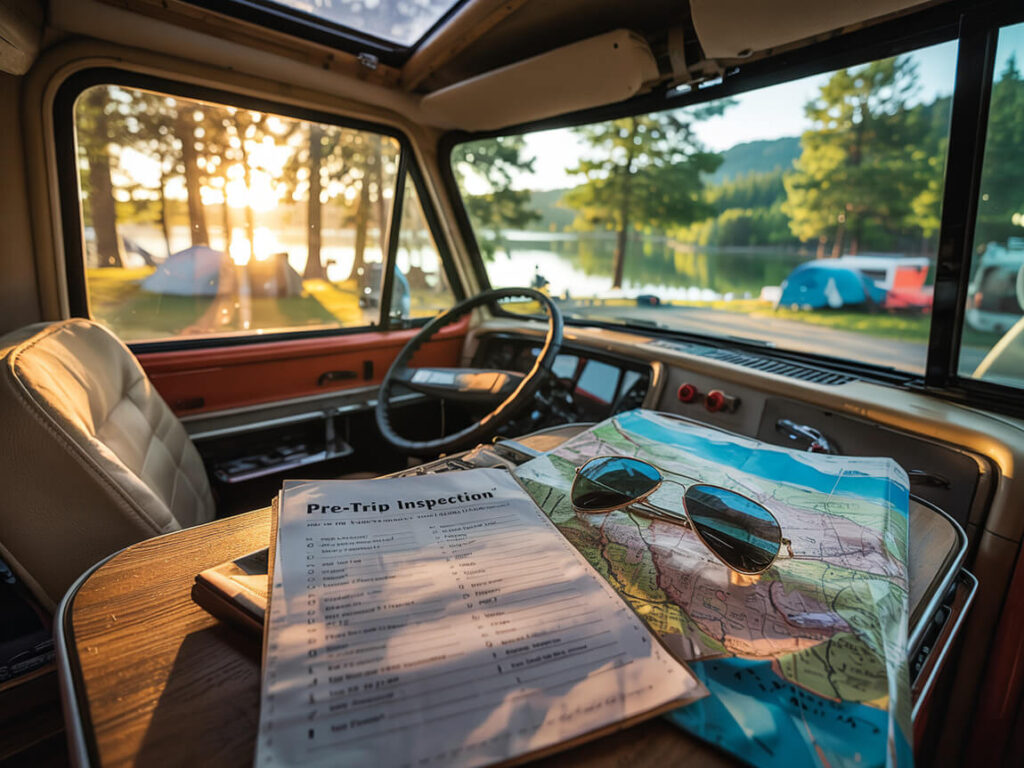
“I’ll remember everything” are famous last words before disaster strikes. Even pros use checklists because nobody’s memory is perfect. Without one, you might drive away with your steps still out or awning extended.
Make a list, check it twice, and avoid those “oops” moments that can cost you big bucks in repairs. Those few extra minutes using a checklist can save hours of trouble and thousands in damage.
3. Not Practicing Driving First
An RV isn’t a Honda Civic. These big rigs handle totally differently than your car! Before hitting the highway, take your new home-on-wheels to an empty parking lot and practice turning, backing up, and parking. Your first time driving shouldn’t be with a line of impatient campers watching you struggle to park at a crowded campground.
Building confidence in a low-pressure environment will make your actual camping trips much more enjoyable.
4. Using Regular GPS Instead of RV-Specific Routes
Regular GPS apps don’t know you’re driving a 13-foot-tall vehicle. They’ll happily direct you under an 11-foot bridge or down narrow roads where you can’t turn around.
Use RV-specific navigation tools that know your height, weight, and length to avoid heart-stopping moments and expensive mishaps. These can also help you find RV-friendly gas stations and rest areas along your route.
5. Leaving the Black Tank Open
This rookie move seems logical but causes big problems. When you leave the black tank valve open, liquids drain out but solids stay put, creating what RVers call the “poop pyramid” (gross, we know).
Keep that valve closed until it’s time to dump, then open it fully to flush everything out at once. This simple habit will prevent nasty clogs and the even nastier job of clearing them.
6. Not Checking Campsite Requirements
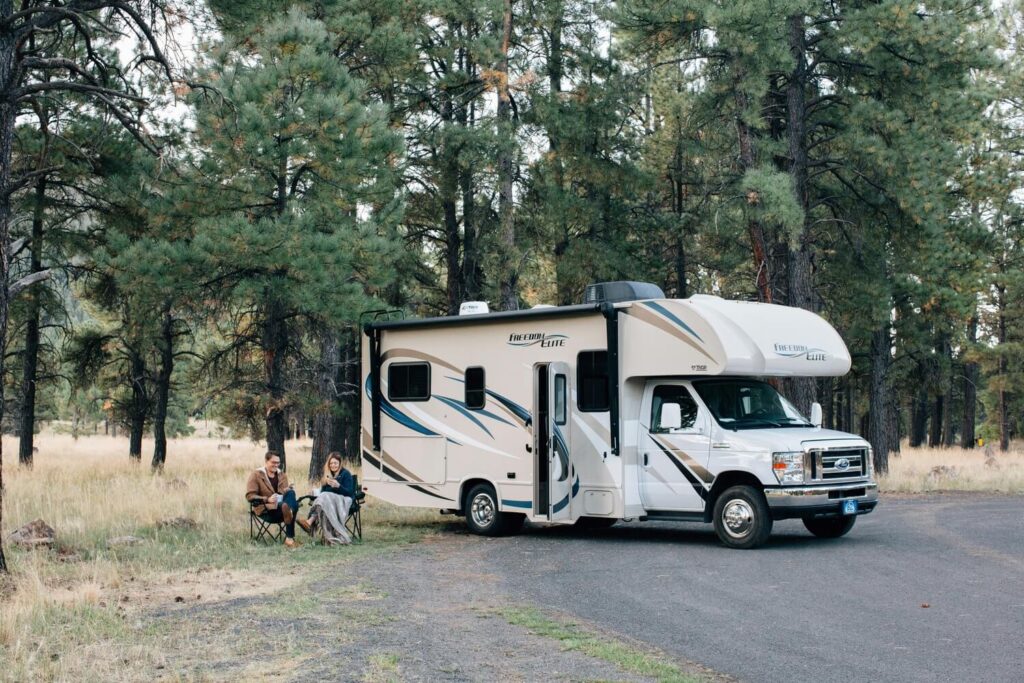
Nothing ruins a trip faster than arriving at a campsite that’s too small for your rig or doesn’t have the hookups you need. Always confirm the site length, width, and available utilities before booking. A few minutes of research saves hours of frustration and the panic of having nowhere to stay.
Don’t forget to check if the campsite is back-in only or if it offers pull-through options, especially if you’re new to backing up your RV.
7. Not Understanding RV Systems
RVs have complex systems that work differently from your house. Learning how your electrical, water, and propane systems work isn’t just convenient, it’s essential. Understanding the basics helps you troubleshoot problems, avoid costly mistakes, and keep everything running smoothly when you’re miles from help.
Taking time to read the manual and watch online tutorials can save you from midnight emergencies and expensive repair bills.
8. Ignoring Weight Limits
Your RV has a maximum weight it can safely carry, called the Cargo Carrying Capacity (CCC). Ignore it at your peril! Overloading stresses the frame, axles, and tires, potentially causing blowouts or breakdowns.
Weigh your loaded RV and stay well under the limit to keep your rig (and family) safe on the road. Remember that water weighs over eight pounds per gallon, so full tanks add significant weight to your total.
9. Not Budgeting for Repairs
RVs break down. It’s not a question of if, but when. Set aside money for regular maintenance and unexpected repairs, or you’ll be stuck when something inevitably goes wrong. Budget for at least a few hundred dollars per year in maintenance costs, more for older rigs or full-time use.
Many experienced RVers recommend setting aside about 10% of your RV’s value annually for maintenance and repairs.
10. Booking Campsites Too Late
Popular campgrounds fill up months in advance, especially during peak seasons. If you wait until the week before your trip to book, you might end up with no place to stay. Plan ahead and reserve early, particularly for holiday weekends, national parks, and beach destinations. Some sought-after sites can be booked up to a year in advance, so mark your calendar for reservation opening dates.
11. Planning Too Many Miles Per Day
Driving an RV is more tiring than driving a car, and everything takes longer. Planning 8-hour driving days will leave you exhausted and frustrated. Instead, limit yourself to 4-5 hours of driving time per day, and build in buffer days for rest and unexpected delays.
The journey should be enjoyable, not a race. Remember that travel days also include time for packing up, setting up at the new location, fuel stops, and food breaks.
12. Setting Up Sewer Hoses Incorrectly
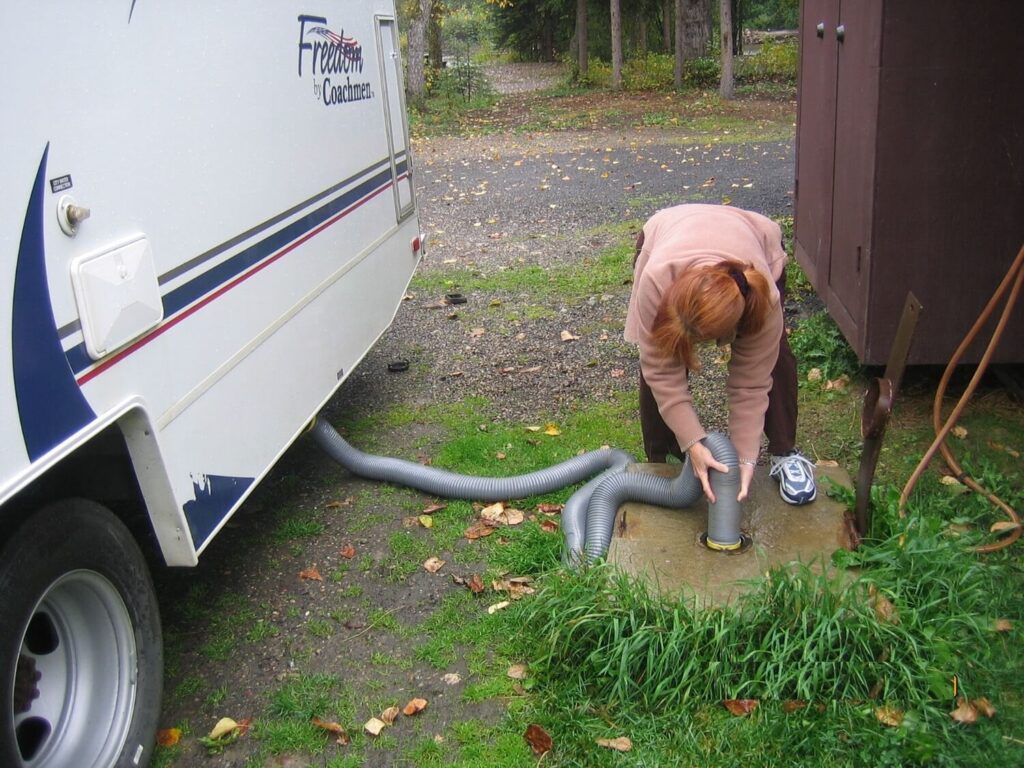
Nobody wants a messy disaster at the dump station. Use proper sewer hose supports to create a downhill slope from your RV to the dump connection. Without proper slope, waste gets stuck in the hose, leading to clogs and cleanup nightmares that will make you the talk of the campground (not in a good way).
Investing in quality sewer equipment and learning proper dumping procedures is worth every penny when it prevents disgusting accidents.
13. Counting on Campground WiFi
“Free WiFi” at campgrounds usually means spotty, slow connections that barely load a webpage. If you need reliable internet for work or entertainment, bring your own solution like a mobile hotspot or satellite internet.
Campground WiFi is fine for checking email, but not much else. The further your site is from the office or WiFi repeaters, the worse your connection will likely be.
14. Rushing Through Setup and Driving
Take your time! Rushing leads to mistakes, forgotten steps, and stress.
Whether you’re setting up camp or navigating a tight turn, slow and steady wins the race. Pull over if you need to check something, and give yourself plenty of time for arrival and departure. Other RVers will appreciate your careful driving more than your speed, especially in crowded campgrounds.
15. Neglecting Maintenance
Regular maintenance prevents small issues from becoming big, expensive problems. Check and maintain your roof seals, tires, batteries, and appliances on a regular schedule. A little prevention now saves thousands in repairs later, especially when it comes to catching water leaks early.
Develop a maintenance calendar that reminds you when to inspect critical components like slide seals, roof caulk, and tire pressure.
16. Breaking Campground Etiquette
Being a good neighbor makes camping more fun for everyone. Don’t cut through other sites, keep noise down during quiet hours, control your pets, and follow campground rules. Breaking etiquette rules can get you dirty looks, complaints to management, or even asked to leave the campground.
Remember that sound travels easily between RVs, so your late-night movie marathon might be keeping the family next door wide awake.
17. Not Knowing Your RV’s Measurements
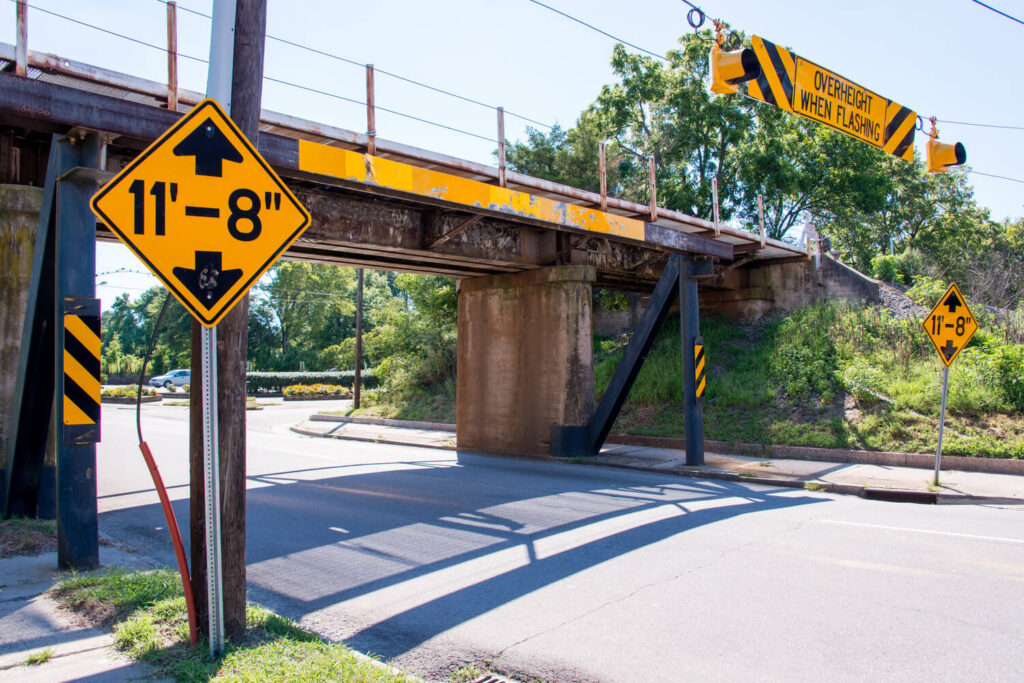
You need to know your RV’s exact height, width, length, and weight. Write these numbers down and keep them handy. This information helps you avoid low bridges, narrow roads, and weight-restricted areas. Many RVers put a sticky note with these numbers on their dashboard for quick reference.
Don’t forget to include any roof air conditioners, antennas, or satellite dishes in your height measurement.
18. Getting Inadequate Insurance
Regular car insurance doesn’t cut it for RVs. Make sure your policy covers full replacement value, personal belongings, roadside assistance, and emergency expenses. The right coverage gives you peace of mind, while inadequate insurance can leave you financially devastated after an accident or theft. Talk to an insurance agent who specializes in RV coverage to make sure you have the protection you need.
19. Bringing Too Much Gear
RVs have limited storage and weight capacity. Start with just the essentials and add items as you discover you need them. Many beginners buy way too many gadgets before their first trip, wasting money and precious storage space on things they rarely use.
Remember, you can always buy things along the way. Most experienced RVers regularly purge unused items to keep their rigs organized and under weight limits.
20. Getting Distracted During Setup or Takedown
Focus is crucial when setting up or breaking down camp. Distractions lead to forgotten steps and mistakes. Ask neighbors to wait until you’re done before striking up a conversation, and return to your checklist if you get interrupted. Your complete attention during these critical times prevents accidents and damage. Using walkie-talkies or hand signals with your travel partner can help maintain focus during setup and hitching.
21. Treating Full-Time RVing Like a Vacation
If you’re planning to RV full-time, remember it’s a lifestyle, not an endless vacation. You can’t visit every attraction or eat out at every stop without draining your savings. Create a realistic budget, cook most meals in your RV, and choose free or low-cost activities to make your adventure sustainable.
Many full-timers find that staying in one location for longer periods (like a month) saves money on fuel and campground fees while allowing deeper exploration of an area.



